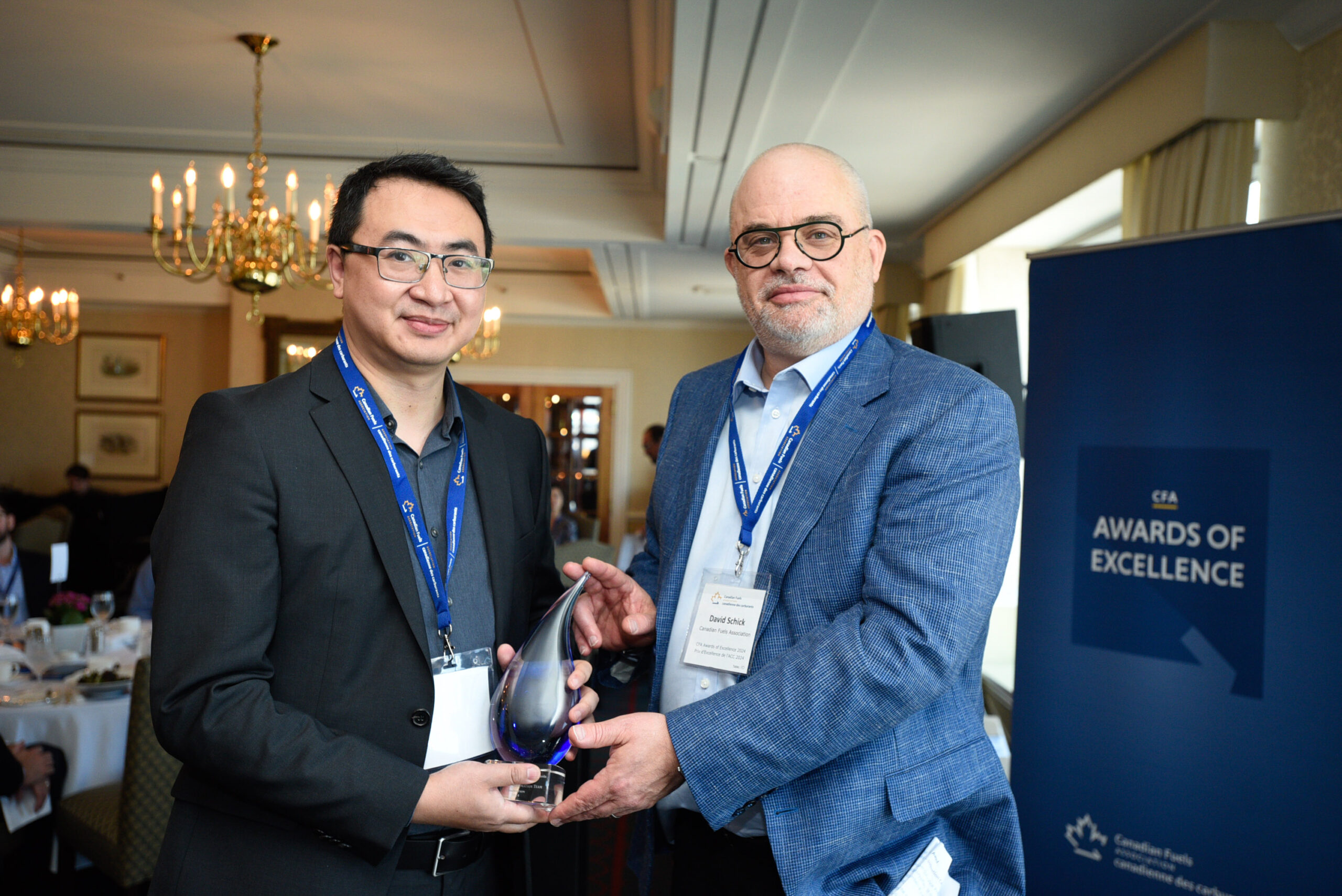The Shell Scotford Procedural Automation (PA) team, recipient of the 2024 Canadian Fuels Association (CFA) Innovation Award, includes Yinan Zhang (Team Lead), Johann Pitter (Control Engineer), Jason Walker (Production Specialist), Sami Bahakim (P&T Control Engineer), and David Trenholm (Schneider Electric Automation Engineer).
This year’s CFA Innovation Award recipient has achieved groundbreaking advancements in dynamic simulator utilization and AI integration, effectively mitigating both planned and unplanned outages. Their work has significantly enhanced operational efficiency and safety, transforming automated intervention to handle increasingly complex situations. This innovation assists operators in executing plant interventions “the best way every time”.

“Our approach revolves around leveraging dynamic simulators for personnel training and automation system refinement, underpinned by an AI “brain”.” says Yinan Zhang, Procedural Automation Team Lead. The multi-purpose dynamic simulator (MPDS) emerged as a pivotal tool, used extensively within their project. “It not only saves significant time but also facilitates exhaustive function testing, similar to real plant operations.”
A standout feature of the MPDS is its near-identical replication of real plant dynamics, eliminating an impressive 80-90% of errors before implementation. Live demonstrations from the simulator provide vivid insights, aiding reviewers’ understanding and facilitating constructive feedback.
The integration of the MPDS into the Azure cloud as a training environment for the AI system showcases the team’s innovation. The AI undergoes rigorous training and validation, guided by seasoned experts who analyze mistakes and determine the best solutions to prevent their recurrence.
“The automated response systems are meticulously designed to address a range of undesirable scenarios, from equipment failures to process issues,” says Yinan. “Our team has developed a comprehensive checklist for procedural automation and, through extensive function testing and simulations of real-life scenarios, we ensure response consistency that surpasses traditional methods in both reliability and timeliness.”

Key Performance Indicators (KPIs) such as activation rate, operational feedback, and downtime reduction are essential metrics for assessing the effectiveness of automated programs. These metrics provide invaluable insights into the program’s performance and user engagement.
Engaging employees and fostering the adoption of these solutions is critical for success. Guided by seasoned production specialists and tailored training methods, the team has achieved high levels of user engagement. They have successfully cultivated a culture of innovation and collaboration by addressing concerns, offering support, and streamlining operational procedures.
The future looks promising for the Procedural Automation team at Shell Scotford. They aim to simplify PA with standard templates, explore new solutions compatible with any platform, and enhance PA with advanced technologies like AI. The team extends their gratitude to all mentors and collaborators who have contributed to their success.
In summary, Shell Scotford’s Automation Team is leading the way in making operations safer, smoother, and smarter. With their blend of tech savvy and human touch, they’re setting the bar high for innovation in the fuel industry.

